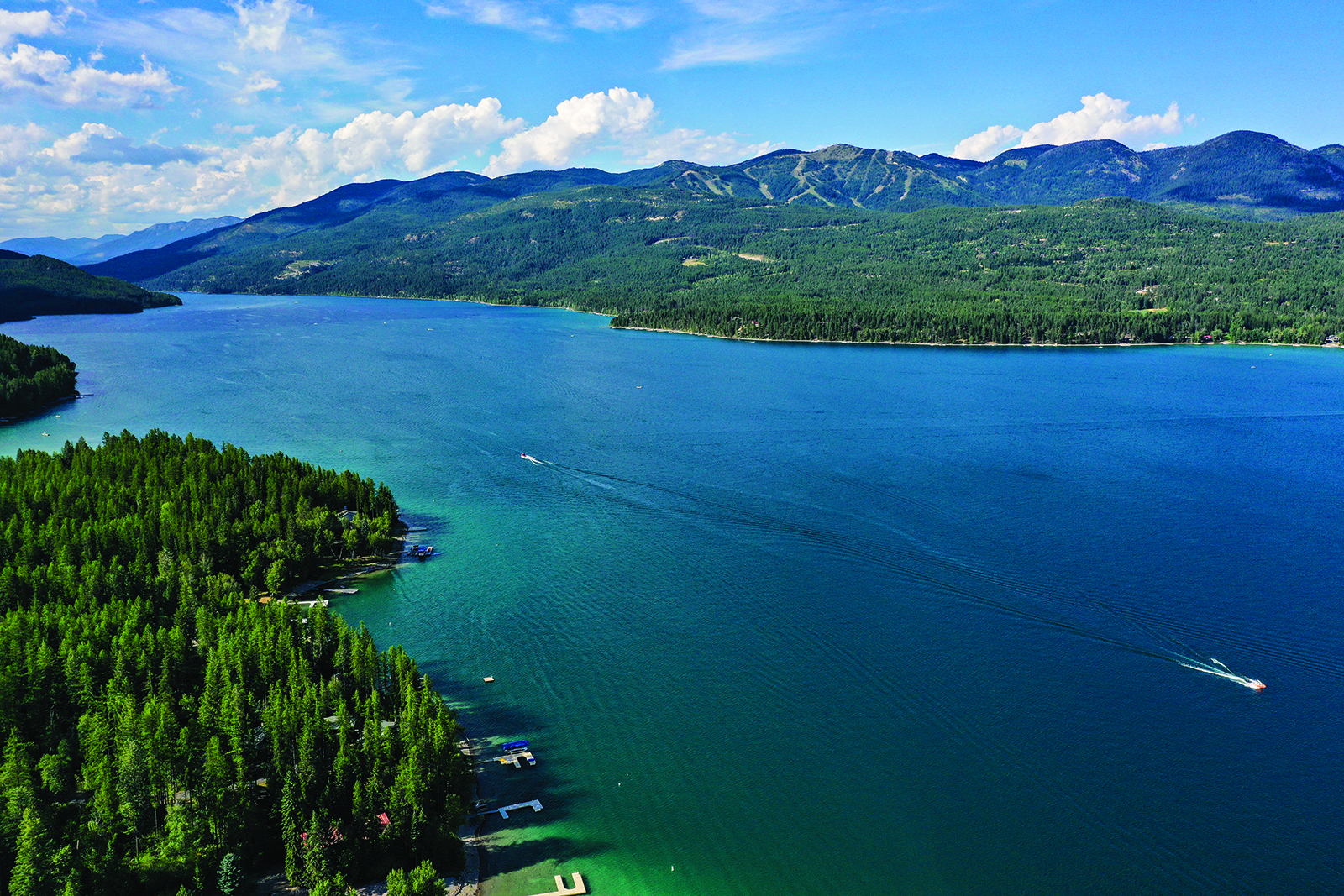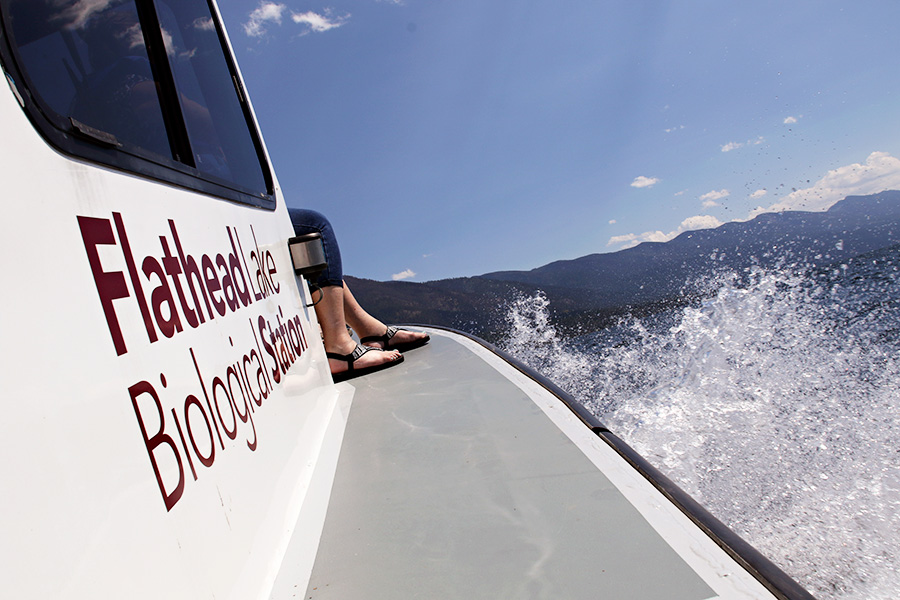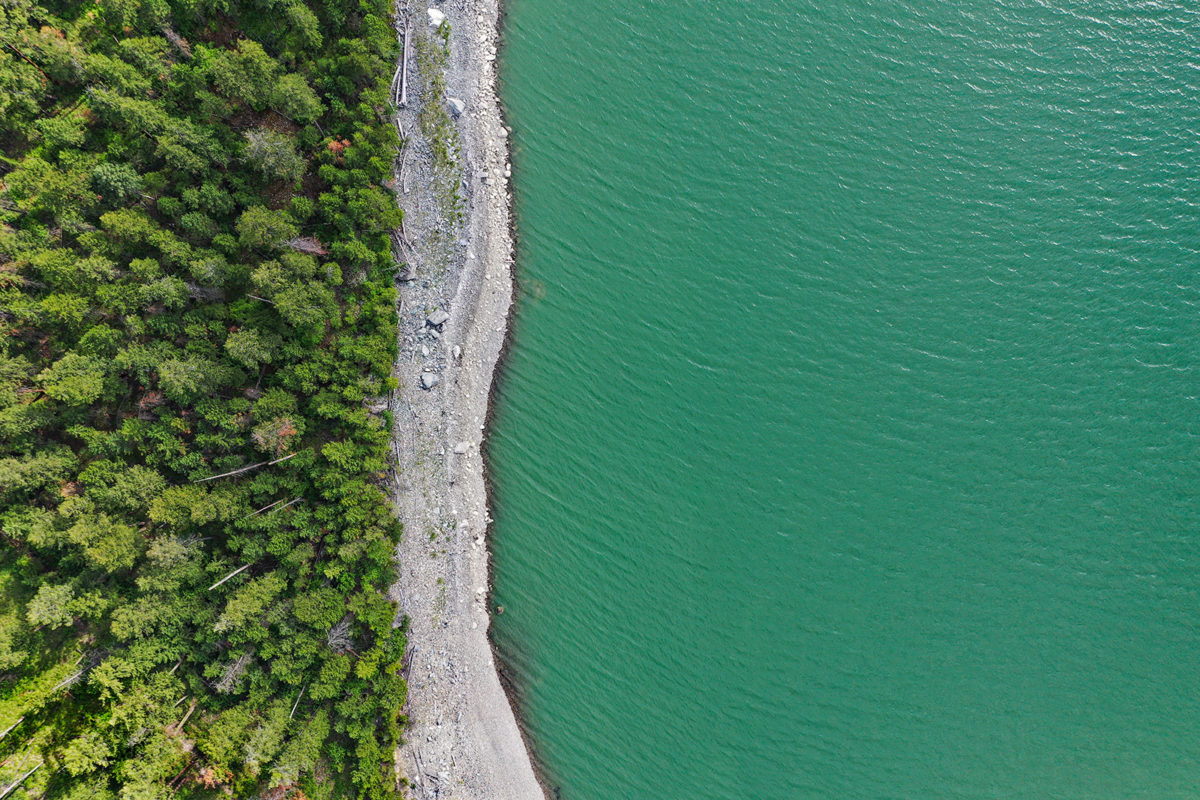Diving Beneath the Surface of Montana’s Lakes
While western Montana’s lakes remain clean, blue and mussel-free, scientists at the second-annual Montana Lakes Conference in Whitefish plan to discuss community-based solutions to ongoing environmental challenges
By Tristan Scott
At the second annual Montana Lakes Conference in Whitefish, scientists and water-quality experts will highlight community-based efforts to promote healthy lake and reservoir ecosystems across the state as well as a raft of emerging lake science and management issues, ranging from the benefits of water conservation and the threats of aquatic invasive species to protecting the water quality and clarity of Whitefish and Flathead lakes.
First held in 2019, the Montana Lakes Conference was created to forge solutions for threats that Montana lakes face today. Hosted by the Whitefish Lake Institute, it is organized every four years and takes place at The Lodge at Whitefish Lake. This year’s conference is slated to kick off Wednesday, Oct. 18, at 5 p.m. with a community night featuring original posters designed by Whitefish-area youth followed by a series of short, science-based talks geared toward the public. The evening includes complimentary refreshments. The conference continues Oct. 19-20 with a full itinerary of speakers and activities. It is open to the public, business owners, scientists, agency staff, students, and citizen advocates for clean water.
“We rely on Whitefish Lake for recreation, we live on its shores, eat fish from it, and in Whitefish we all drink it,” according to conference organizer Carol Treadwell of the Whitefish Lake Institute. “Because our lakes are a shared public resource, it is imperative that we work together to keep them clean today and for our grandchildren tomorrow.”
To register for the full conference and to find a detailed agenda visit the Montana Lakes Conference tab on Whiteish Lake Institute’s website here.
The two-day conference is organized into concurrent sessions with a science and policy track and a citizen science track.
Leading off the conference is keynote speaker Andrew Sansom, founder of the Meadows Center for Water and the Environment. An award-winning water conservationist, Sansom will share expertise gained from a 50-year career that has inspired communities to engage in water conservation.
Jim Elser, director of the Flathead Biological Station and a nationally renowned lake ecologist, will deliver a forward-looking presentation on “Phosphorus, food, and our future.” Dan Wickham, a microbiologist, will share how microbes can be used to cost-effectively rehabilitate failing septic systems. Microbes also make wine, and Wickham will be on hand to describe what the two have in common.
Other topics include:
Septic pollutants — The effect of failing septic systems is a concern of many lake associations and lakeshore property owners. At the conference, new technology for septic solutions will be presented by industry leaders. A panel discussion involving university and agency staff will give attendees a chance to discuss with experts the implications and solutions to this pervasive issue.
Aquatic invasive species prevention — Whitefish Lake and Flathead Lake are at the headwaters of the Columbia River Basin which is one of the only watersheds in the U.S. that remains free of zebra and quagga mussels. If mussels were to invade, the cost to Montana residents would be tremendous.
Nutrient and contaminant pollutants — Lake Koocanusa and the upstream threats of coal mining has received increased attention in recent legislative sessions. At the conference, U.S. Geological Survey experts will detail long-term changes in the concentration of selenium in this transboundary lake and its impact on aquatic life.

Other tracks will attempt to understand questions such as: What’s being done about invasive fish in Flathead Lake, Glacier Park, and other Montanan Lakes? Where did that algae on my beach come from? What are the benefits of living on a clean, clear lake?
“There is far-reaching economic importance to maintaining lake water quality,” Treadwell said. “Economic analysis reveals that highly desirable lakes such as Flathead Lake and Whitefish Lake enhance adjoining and surrounding property values, thus contributing significantly to the local economy and tax base. Monitoring and protecting our lakes is not only important for maintaining ecological integrity and recreational opportunities, but also for contributing to the economies of these communities.”
“On lakes in the US where water quality has declined significantly, property values of shoreline real estate has dropped by up to 25%,” she added. “This underlines the importance of our shared responsibility to keep Montana lakes blue, drinkable, boatable, and desirable to live next to.”

The Montana Lakes Conference is sponsored by The Barn Group, the Western Montana Conservation Commission, the Montana Department of Natural Resources and Conservation, Montana Department of Environmental Quality, Montana Fish, Wildlife and Parks, Whitefish Convention and Visitors Bureau, Whitefish County Water and Sewer District, Flathead Conservation District, Flathead Lake Biological Station, River Design Group, Flathead Lakers, Swan Lakers, Glacier Bank, Montana Trout Unlimited, Forestoration, Little Bitterroot Lake Association, the Montana Watershed Coordination Council, and Whitefish Marine.